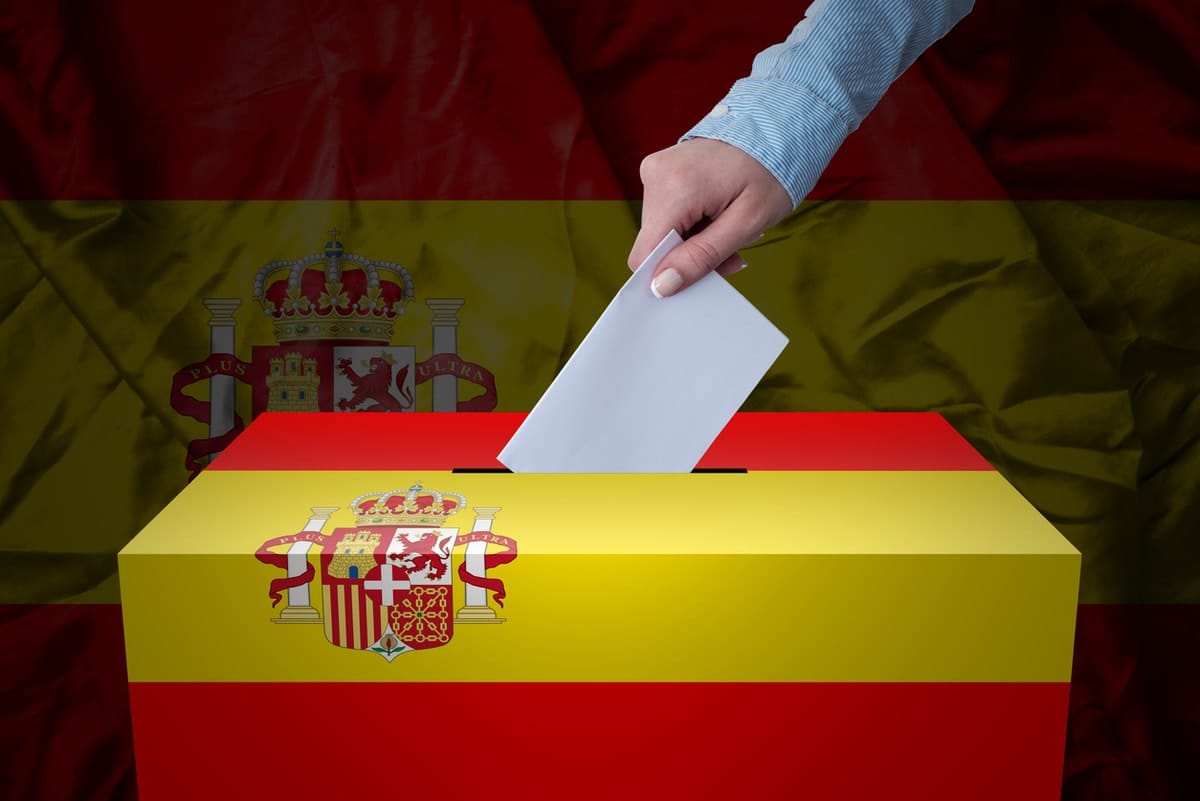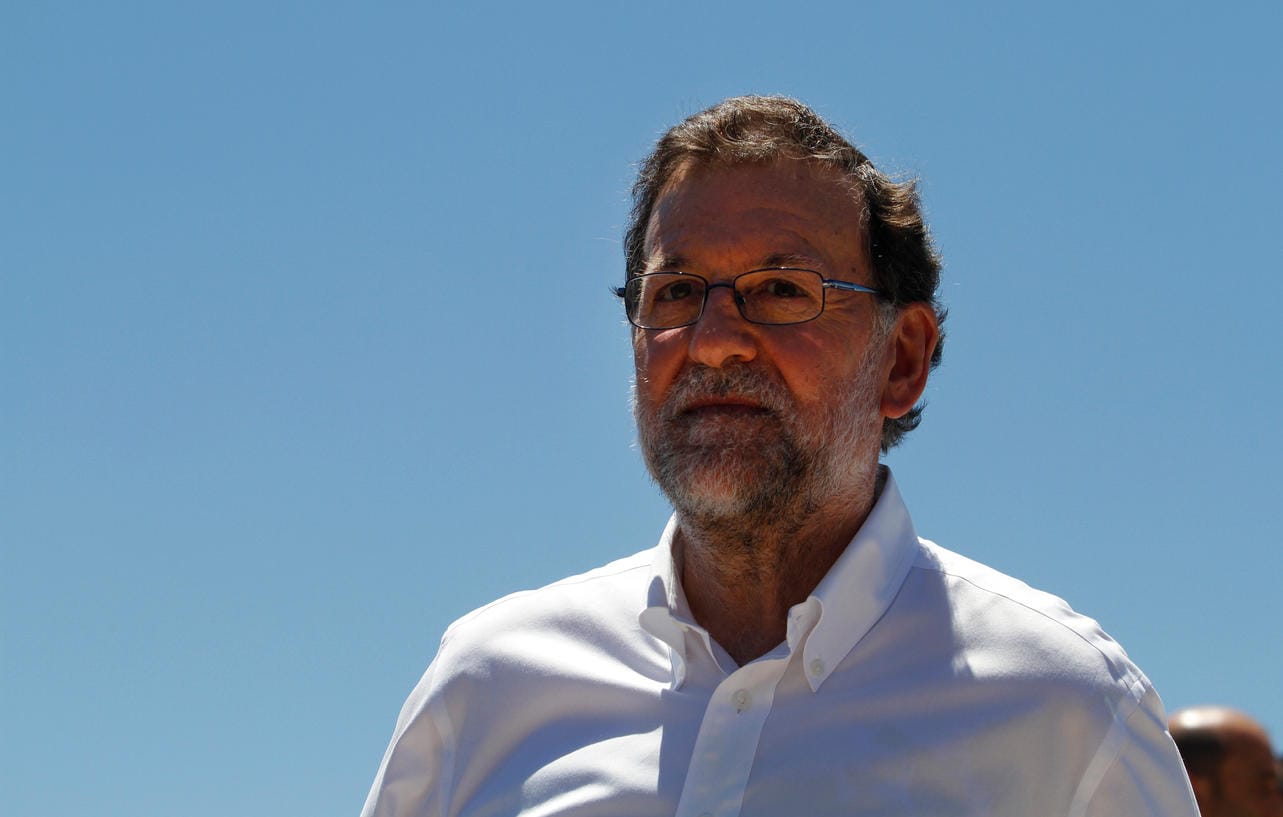
On 10 November, Spaniards will vote in a general election for the fourth time in four years, and for the second time in 2019.
After the December 2015 elections, incumbent Prime Minister Mariano Rajoy (Partido Popular, conservative) was forced to call new elections in June 2016 after failing to gain enough support. Although on that occasion he was successful, in June 2018 he was ousted by a motion of no confidence led by Pedro Sánchez (PSOE, social democrat), who became the new Prime Minister.
Sánchez’s minority government struggled for a few months, eventually calling early elections in April 2019. Since the resulting parliament couldn’t agree on a prime minister, Spain will again go to the polls in November.
Unpacking the Spanish electoral system
But why has this happened? Why is Spain having so many problems electing its next prime minister when prior to Mariano Rajoy it had only three in 30 years (1982-2011)?
To understand the situation, it’s important to consider how the electoral system in Spain works. In Australia (as in the United Kingdom, and many other countries), there are as many constituencies as seats in parliament, with each electing one MP. This system tends to favour the major parties (which in the current parliament hold 96 per cent of the seats), and makes it almost impossible for minority parties to enter parliament (the Greens, for example, had 10 per cent of the votes nationwide in the previous elections, but have only one MP).

When Spain returned to democracy after Franco’s dictatorship, a decision was made to implement a system that would make it easier for regional parties to enter parliament, as well as to have larger constituencies, each electing a varying number of MPs, according to population. The electoral district of Barcelona, for example, elects 48 of the 350 MPs. Since allocation is formulated using a proportional method, those 48 MPs come from seven parties, allowing a larger number of voices to be heard in parliament.
This system has also meant that, unlike the Greens in Australia, a party with 10 per cent of votes currently holds 24 seats, 14.5 per cent of the total (Vox, far-right).
Before the 2015 elections, Spaniards had tended to favour the two main parties, which held up to 92 per cent of the seats. While this provided much-needed stability, I believe it also resulted in a clear disregard for negotiations between the main parties, which frequently saw each other as the enemy.
Outrage on the streets
In 2011, however, the indignados (outraged) movement took to the streets, first in Madrid, then nationwide. In the wake of the worsening economic crisis, during which the unemployment rate would reach 27 per cent by 2013, the indignados voiced their rejection of both main parties, blamed for the paltry state of Spain’s economy, and considered unable to lead Spain out of its plight.
This movement resulted, in the first instance, in a new party, Podemos (left), which voiced the views articulated by the indignados. As a knock-on-effect of the anti-establishment sentiments, however, it also resulted in the quick rise of Ciudadanos (centre-right), a party that had struggled to gain currency since its foundation in 2006.
The 2015 elections were a shock to the system, with Partido Popular and PSOE winning just 61 per cent of seats, the lowest percentage of the two main parties since the return of democracy. Podemos won 69 seats (71 in 2016, 42 in 2019), and Ciudadanos 40 (32, 57).
Unfortunately, most polls foresee little change and an ongoing stalemate after the coming elections, with the added worry of a predicted low turnout in a country where voting isn’t compulsory.
By 2019, when Vox entered parliament, winning 24 seats, the sum of seats held by Partido Popular and PSOE fell to an unprecedented 54 per cent. Due to diminishing support for a two-party system, since 2015 Spain has been governed by minority governments, which have held between 35 and 39 per cent of the seats, and have been unable to form strong, lasting coalitions with other parties.
After the April 2019 elections, Podemos strongly argued that its share of voters must be matched by a share of ministers in a potential PSOE-led government, while PSOE favoured a general program-based pact administered by PSOE ministers. The inability to reach an agreement between both parties (and the growing animosity between their leaders, Pedro Sanchez and Pablo Iglesias) eventually led to the dissolution of parliament, and the call for elections to be held on 10 November.
Stalemate likely to continue
Unfortunately, most polls foresee little change and an ongoing stalemate after the coming elections, with the added worry of a predicted low turnout in a country where voting isn’t compulsory.
On the left, almost all polls forecast very little gain, if any, for PSOE, and some loss of votes for Podemos (votes that will mostly go to yet another new party, Más país, left).
On the right, the big winners will be Partido Popular (currently 66 seats, but could reach 100) and Vox (24; could reach 40), with Ciudadanos losing out (its 57 seats may be reduced to 20). The effect of recent events in Catalonia and the exhumation of Franco will mostly favour the conservative parties in these polls.
This week, however, the publicly funded CIS (Spanish Centre for Sociological Research) released its own poll, based on a much larger number of interviews than all other polls. Controversially, given that its director is a PSOE member, it predicted a significant increase for PSOE, a less-than-expected one for Partido Popular, and little variation for Podemos and Vox.
Crucially, it predicted that PSOE and Ciudadanos together would have enough support to form a government. Shortly before the April elections, CIS released a similarly controversial poll, which turned out to be the most accurate prediction.
For what it’s worth – and since we're in the middle of the spring racing carnival – I'm putting my bets on the following:
- PSOE 137-140
- PP 81-88
- Podemos 39-43
- Ciudadanos 30-32
- Vox 25-30
- Más País 2-4
- ERC 18-19
- PdeCat 5-9
- PNV: 6
- EH-Bildu: 5
- CUP: 1
- PRC: 1
- CC: 1
Come back after 10 November to see how my predictions compared with the professionals.





